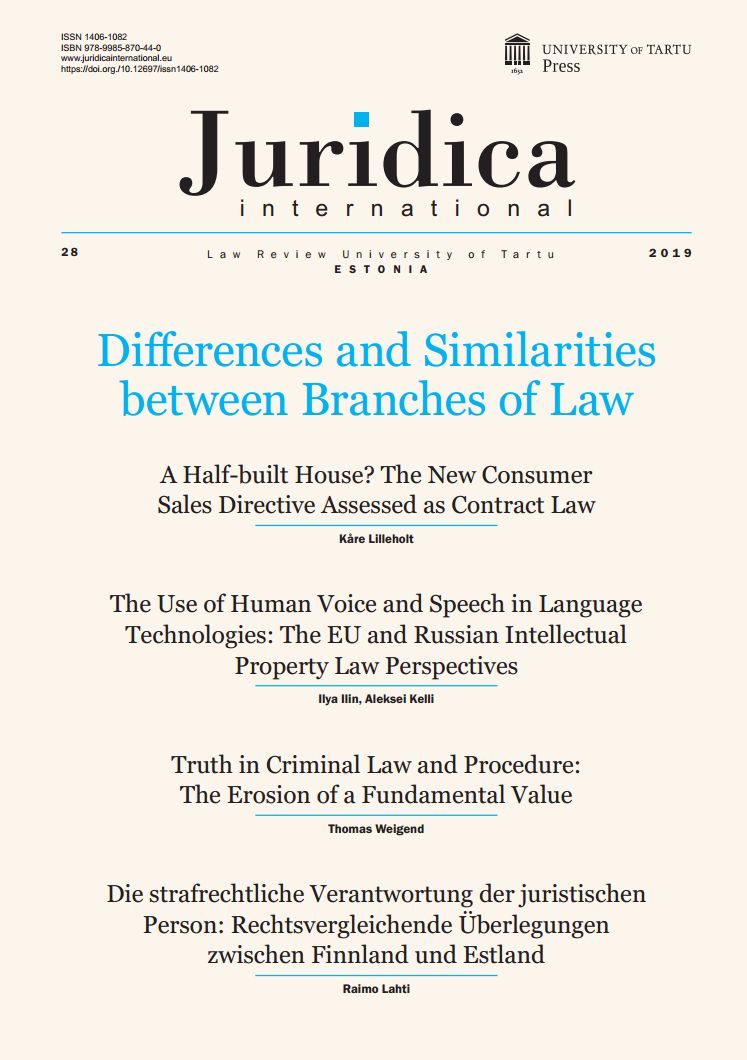The Human Right of Reproduction: Ovum Donation and Surrogacy
DOI:
https://doi.org/10.12697/JI.2019.28.06Keywords:
reproductive medicine, ovum donation, surrogate motherhood, reproductive self-determinationAbstract
The right to reproduction, including the use of modern methods of fertility medicine, is well founded on constitutional grounds and is protected by the Constitution Germany and of Estonia as well. This right is protected also at the level of European human rights, by Article 8 of the European Convention on Human Rights, which addresses the right to a private and family life. In light of Article 8(2) of that convention, restrictions to these are deemed legitimate only when they are based on scientifically valid evidence and to protect the wellbeing of the child. The author concludes that the current state of scientific knowledge gives insufficient reason to justify prohibition of ovum donation and surrogate motherhood. Said prohibition discriminates against people who rely on such methods (thereby infringing on Article 14 of the European Convention on Human Rights and Article 3(1) of the German Basic Law). Therefore, ovum donation and surrogacy should be allowed by law, as is proposed under sections 6 and 8 of the proposal for a modern law on reproductive medicine (AME-FMedG) issued by the Augsburg and Munich Working Group of medical ethics lawyers.


